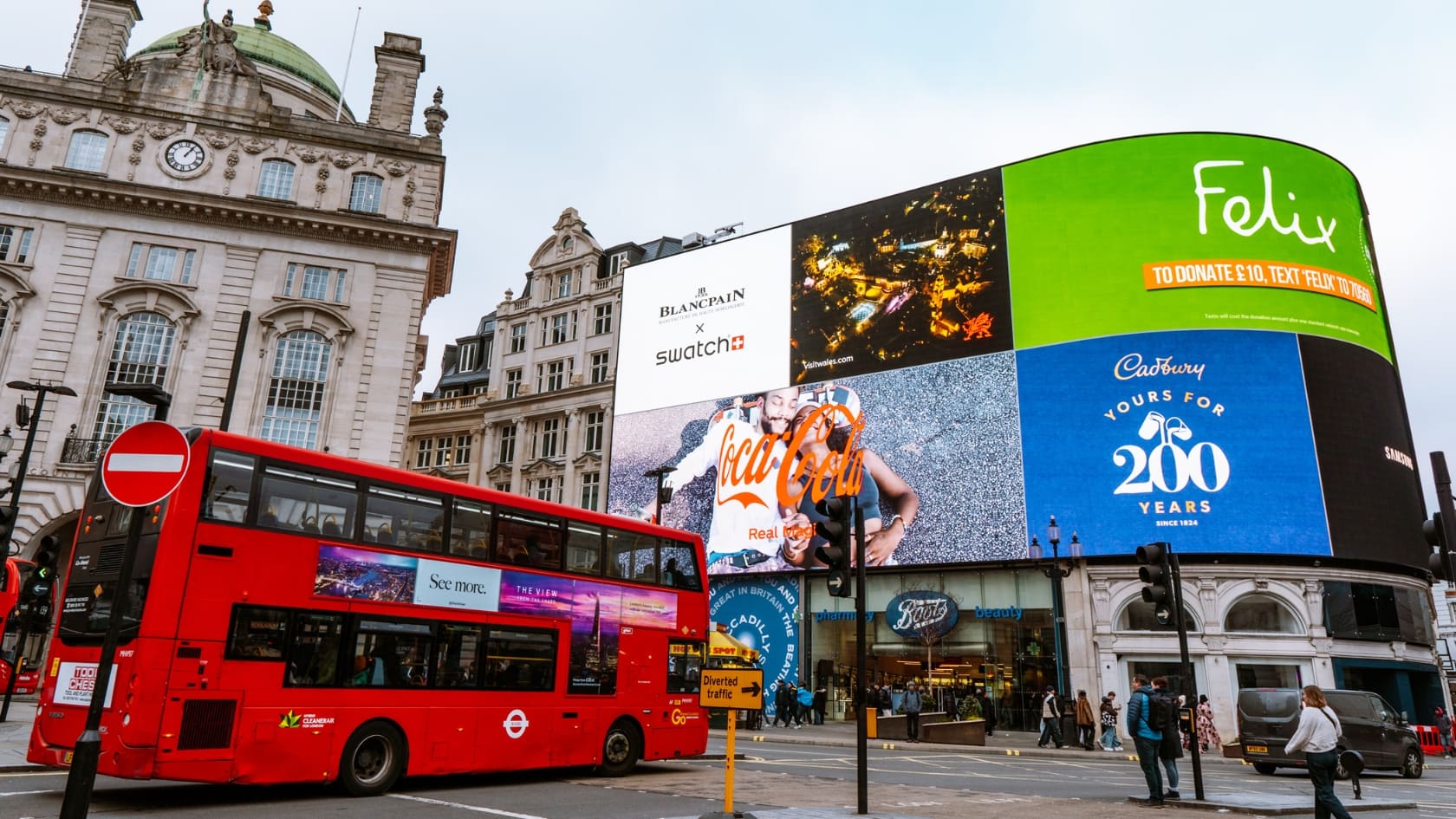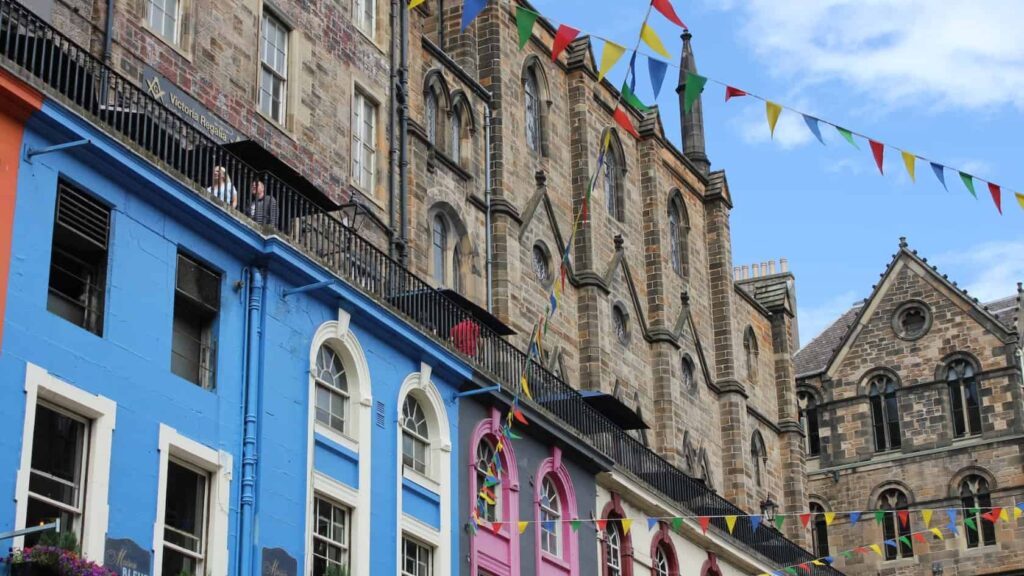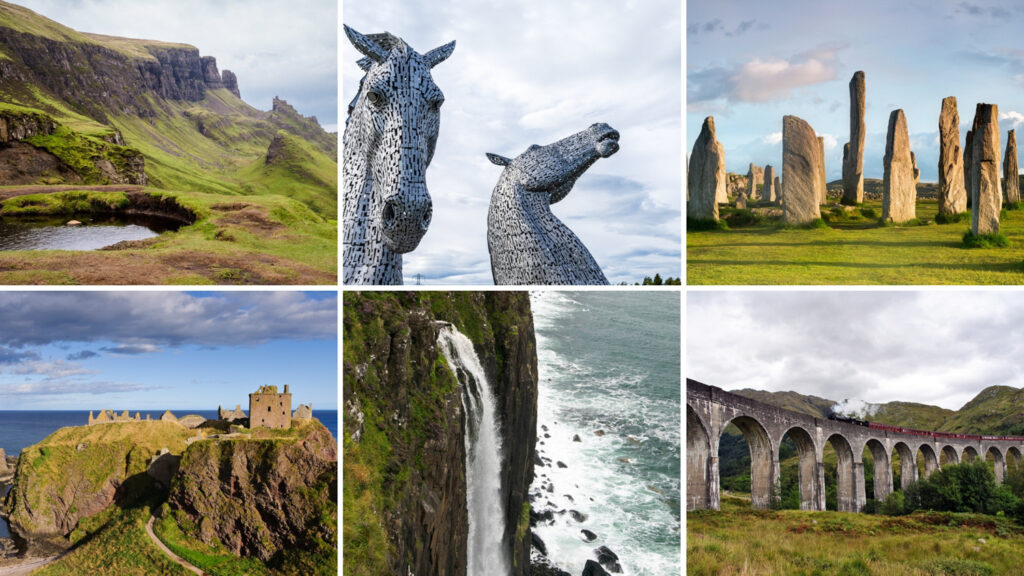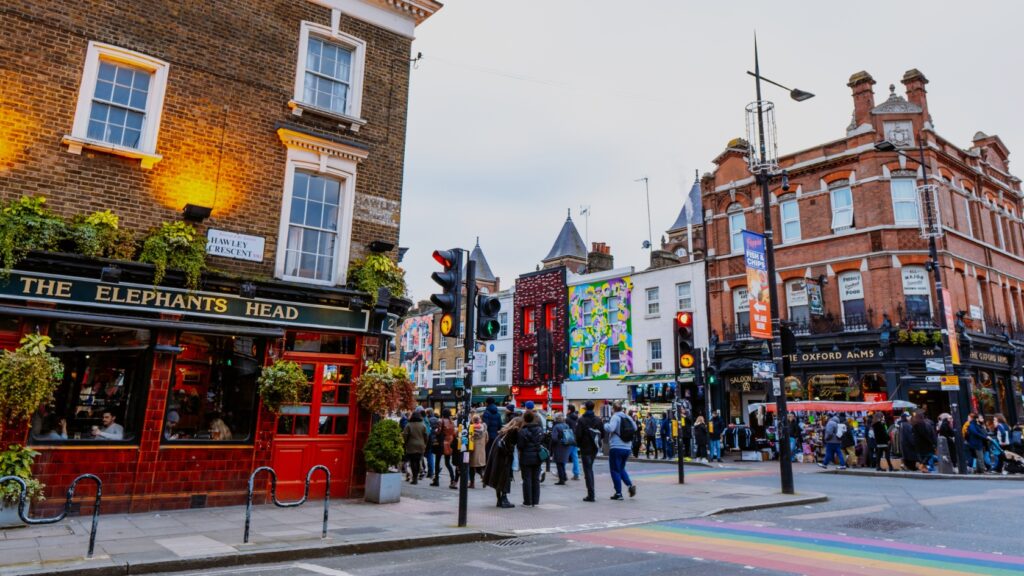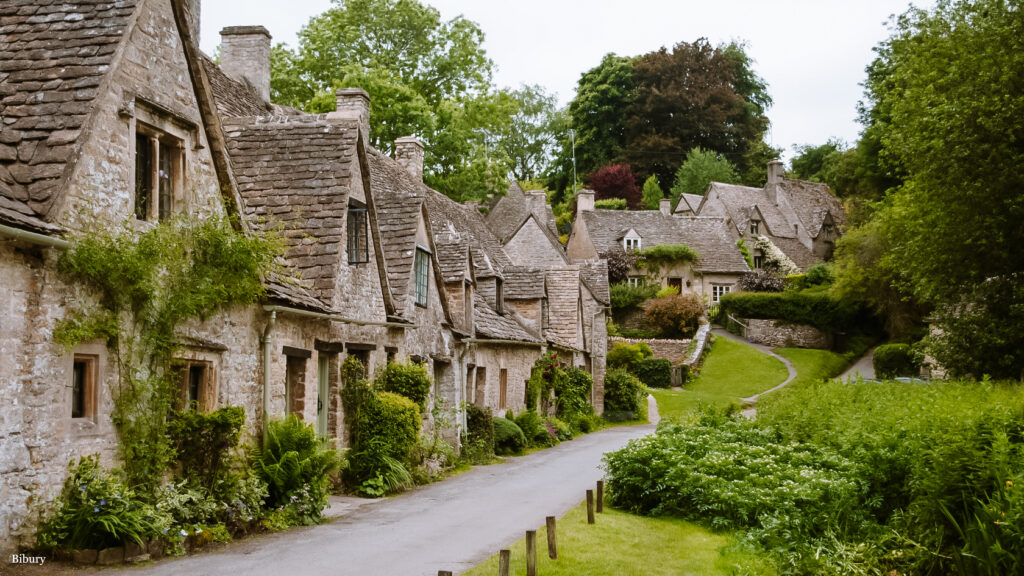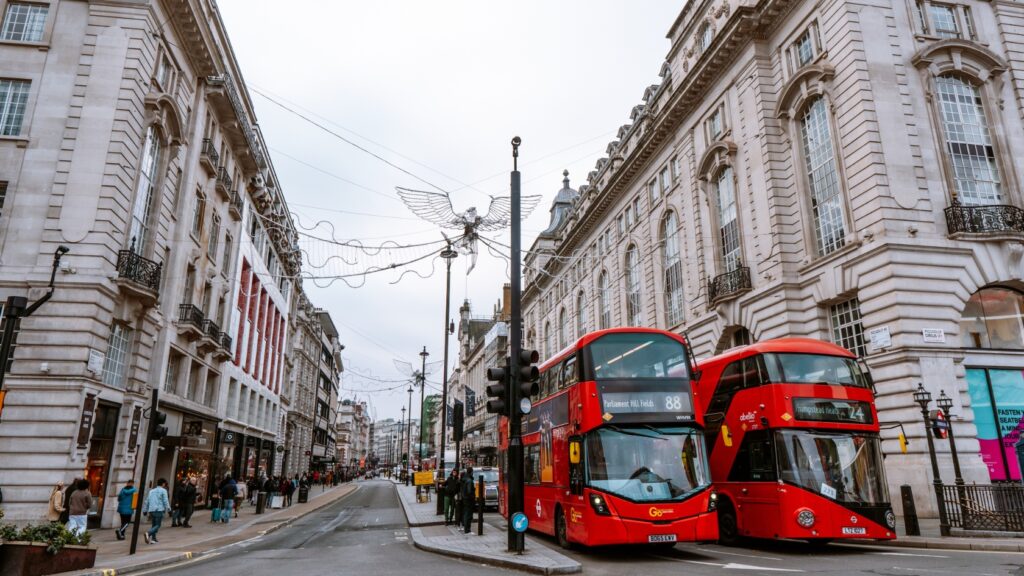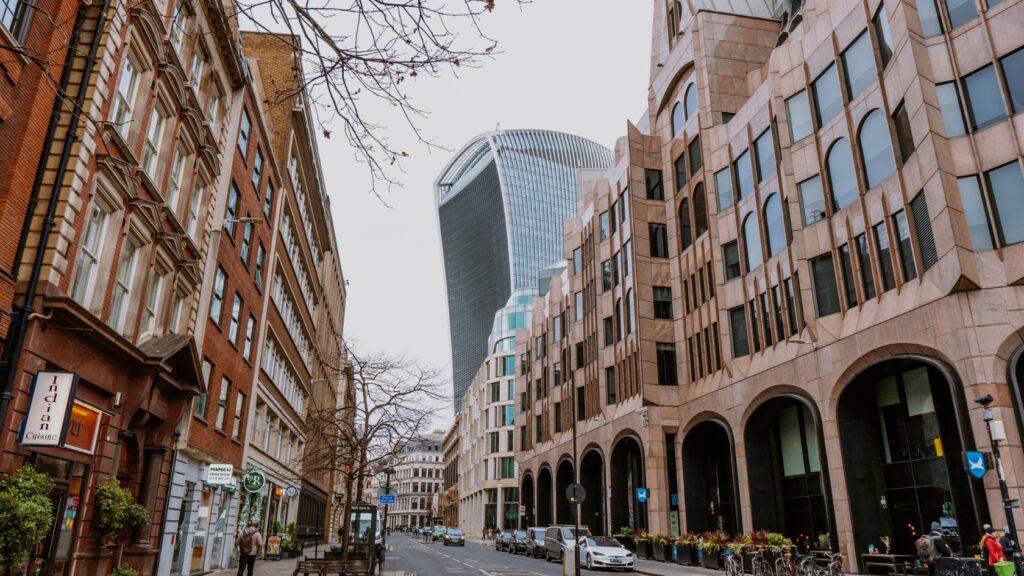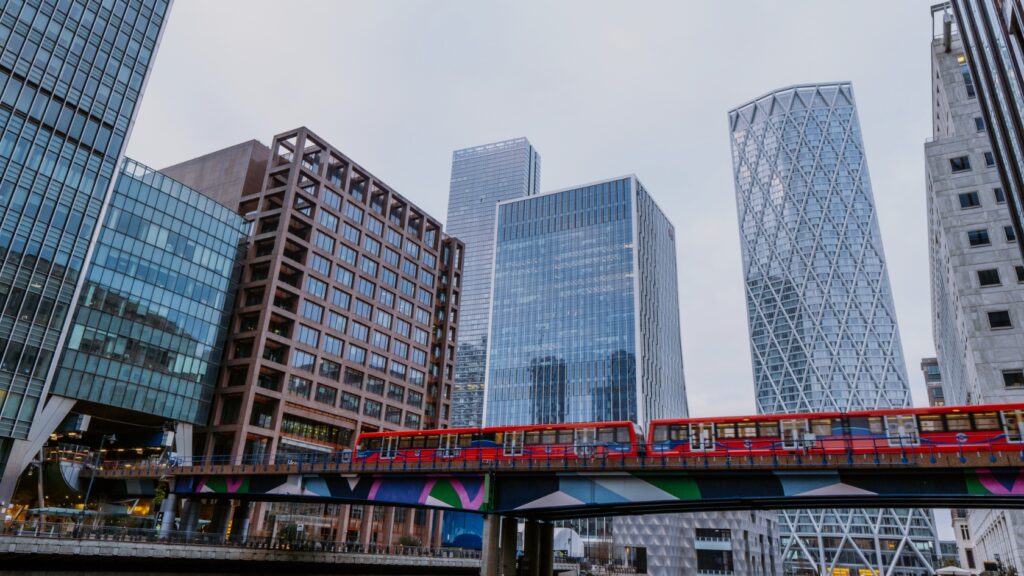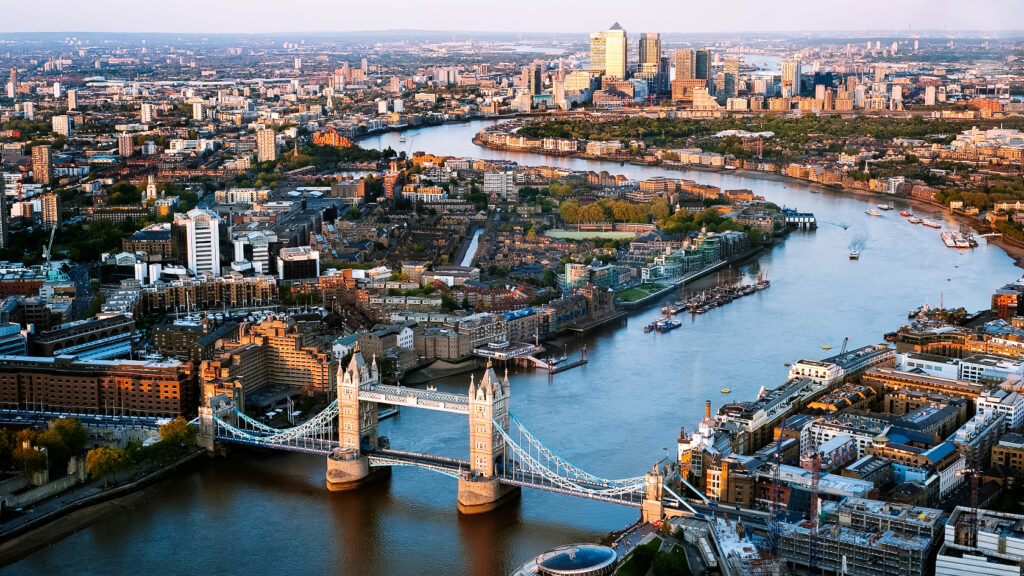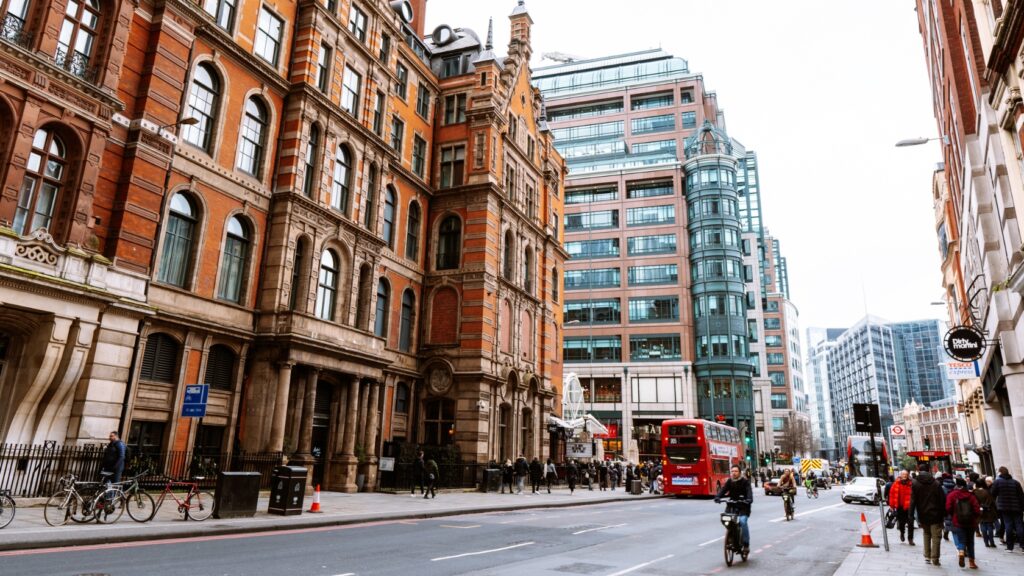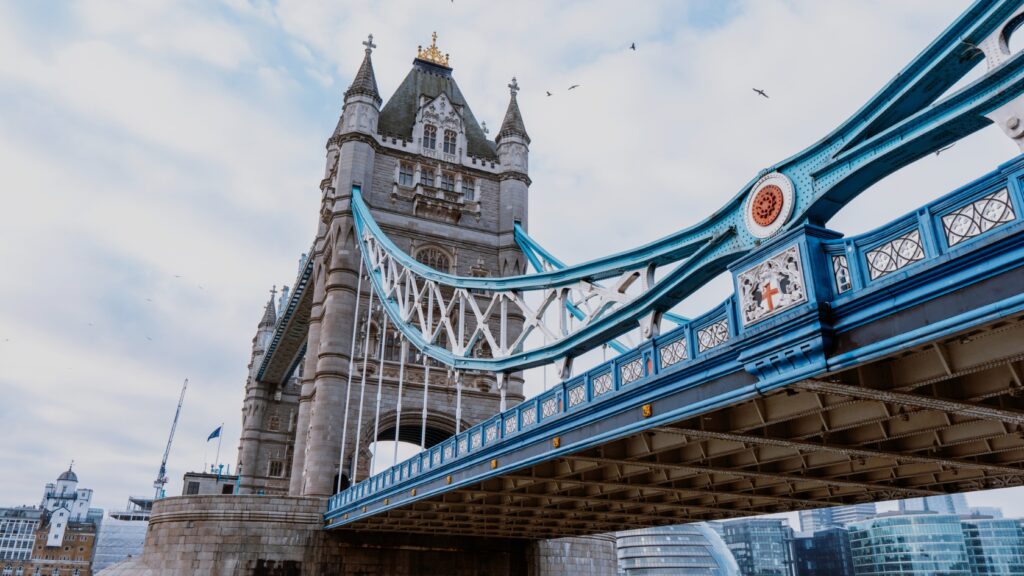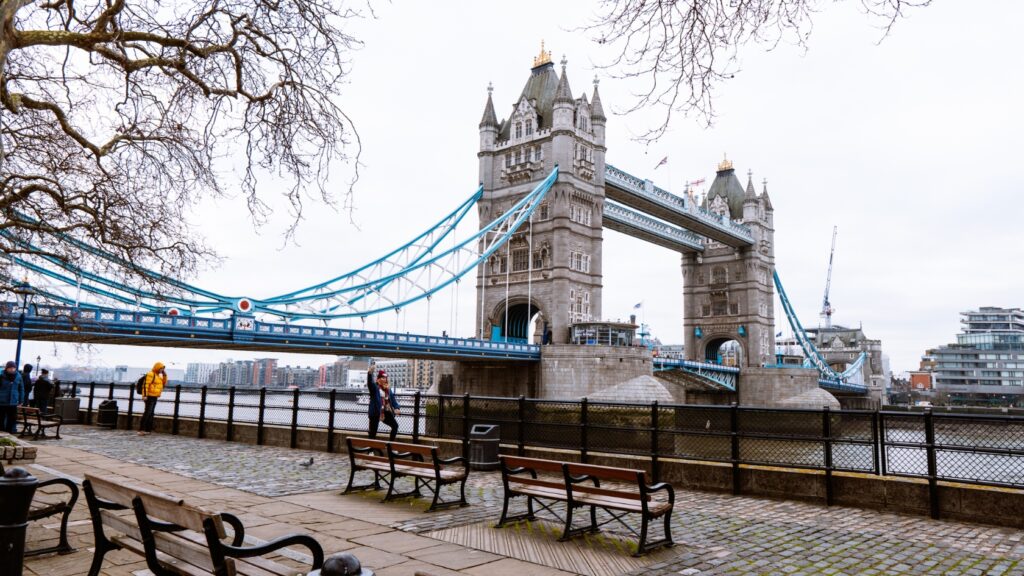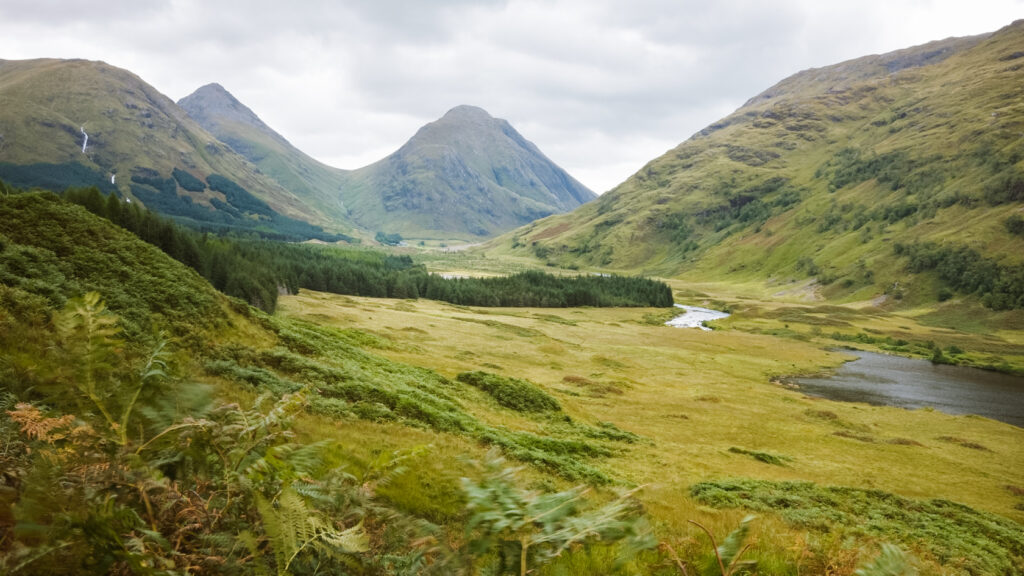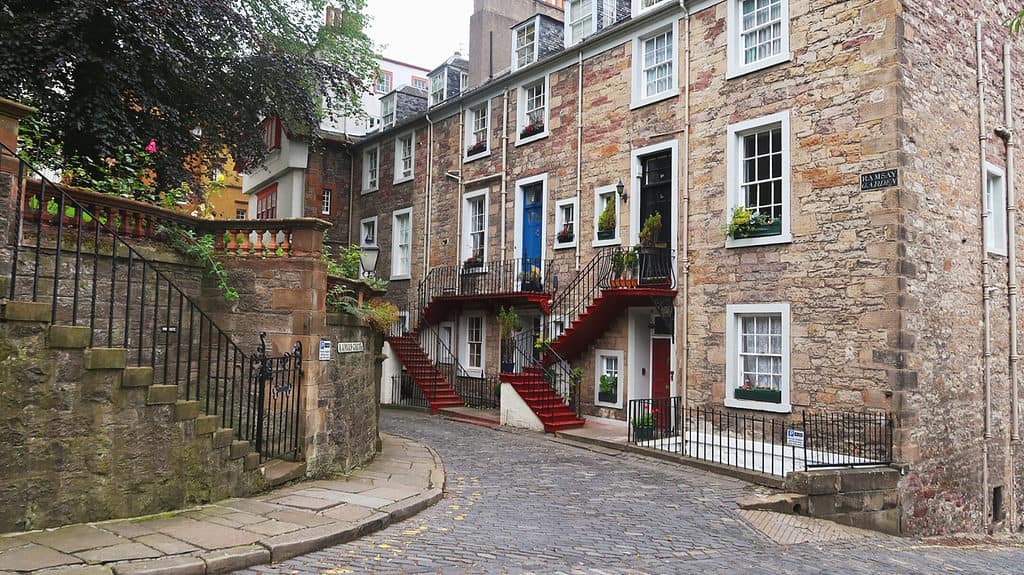TRAVEL GUIDE FOR THE GREAT BRITAIN
Discover the UK and explore vibrant London with its iconic landmarks or enjoy the tranquillity of ancient cathedrals and castles scattered across the country. From the imposing cliffs of Dover to the green hills of the Scottish Highlands.
THE BEST PLACES IN THE UK
25 Things to do in Edinburgh: Best places to visit (+ map)
Planning the best places to visit in Edinburgh? Check out the things to…
25 Things to do in Scotland: Best places to visit (+ map)
Scotland is a region rich in history, a culture steeped in mysterious myths…
33 Things to do in London: Best places to visit (+ map)
Planning to see London and wondering what to visit in London? See the…
24 Things to do in England: Best Places to visit (+ map)
England is a diverse region of the UK with plenty of things to…
LONDON
TRANSPORT IN LONDON: flights, airport, public transport, underground, bike – Guide
London, the most popular city in Europe. Almost all of us want to…
LONDON PASS: How to save on sightseeing in London?
London Pass includes admission to the most popular sights, museums and attractions in…
7 Useful Tips to Save in London (2026)
How to save money in London? Read our guide with proven tips to…
33 Things to do in London: Best places to visit (+ map)
Planning to see London and wondering what to visit in London? See the…
5 days in London: Thre Perfect London Itinerary (+ map)
London is famous for its iconic landmarks such as Tower Bridge and Buckingham…
3 DAYS IN LONDON: Best itinerary & what to see in London (+ map)
Planning to visit London for 3 days? Here is an itinerary of how…
How to spend 1 Perfect Day in London: Ultimate itinerary (+ map)
London. This metropolis absolutely captivated us. A elegant city full of contrasts, where…
London Travel Guide: How to plan perfect trip to London (+ map)
Planning a holiday to London? Take a look at our travel tips and…
25 Things to do in London with kids (+ map)
Are you planning to visit London with children? This guide will help you…
8 Best Hotels and Accommodation in London (+ map)
A detailed guide to the best hotels and accommodation in London: where to…
SCOTLAND
Scotland itinerary: 3-5 day roadtrip around Scotland (+ map)
Join us on a roadtrip through Scotland and discover a region with rugged…
25 Things to do in Edinburgh: Best places to visit (+ map)
Planning the best places to visit in Edinburgh? Check out the things to…
25 Things to do in Scotland: Best places to visit (+ map)
Scotland is a region rich in history, a culture steeped in mysterious myths…
Scotland: Travel tips and guide on how to visit Scotland (+ map)
Located in the northern part of the United Kingdom, Scotland is a country…
15 Things to do on the Isle of Skye, Scotland (+ map): Best places to visit
In the waters of north-west Scotland lies the Isle of Skye, an oasis…
Where to stay in Edinburgh? Best hotels & map
If you’re looking for a place to stay in Edinburgh, there are plenty…
USEFUL INFORMATION
When to visit the UK
The UK is an ideal destination all year round. So the best time depends on what you plan to do in the UK:
Spring (March to May): Spring in the UK is the season of flowers. The weather is pleasant, with milder temperatures and longer days. Tourist destinations and attractions are not so crowded, so spring is the perfect time to visit cities like London or Edinburgh, as well as the English countryside or the Lake District countryside.
Summer (June to August): Summer is the most popular time for tourists, with the highest temperatures and longest days. Cities like London can be very busy but it’s a great time for festivals, outdoor events, visiting the coast in Cornwall or hiking and cycling.
Autumn (September to November): Autumn brings cooler weather and fewer tourists. The landscape turns gold and red, making it ideal for hiking and photography in Scotland.
Winter (December to February): Winter months are cold and can be rainy or even snowy, especially at higher altitudes. But it’s a great time to visit Christmas markets, winter festivals and enjoy a traditional British Christmas.
Transport in the UK
Public transport
Getting around the UK is convenient and efficient thanks to an extensive and well-connected transport system including trains, buses and ferries.
Trains
Britain has an extensive and efficient rail network that connects most cities and many smaller towns. Trains are a fast and convenient way to travel, especially over longer distances. National Rail Services offers various fares and discounts, including group discounts or discounts for young people and senior citizens.
In the UK, the rail network is operated by several different companies providing regional and international services. Some of the major rail carriers include:
- Virgin Trains: now renamed Avanti West Coast, it connects cities such as London, Birmingham, Manchester, Liverpool and Glasgow.
- Great Western Railway (GWR): provides services between London and the South West of England, including Bristol, Exeter and Cornwall.
- Southern Railway: operates trains in the south of England, including destinations such as Brighton and Sussex.
- ScotRail: provides rail services in Scotland, including connections to Edinburgh, Glasgow and the Highlands.
- East Midlands Railway: provides services between London and central England, including Sheffield and Nottingham.
- London North Eastern Railway (LNER): operates services between London and the North East of England and Scotland, including cities such as Leeds and York.
☞ Here you will find all train services in the UK in one place.
Buses
Bus services in the UK are extensive and effectively cover both urban and intercity and long distance routes. Various companies operate services that connect virtually all major cities, smaller towns and rural areas. Here are the main bus carriers:
- National Express: The UK’s largest intercity bus operator, National Express operates an extensive network of routes across the country. It connects most major towns and cities, including London, Birmingham, Manchester, Liverpool, Edinburgh and Glasgow.
- Megabus: This company is known for its affordable services that connect many cities in the UK, including London, Bristol, Cardiff, Leeds, Sheffield and more.
- Stagecoach: Provides extensive regional and local bus services in many areas, including the south of England, Scotland and Wales.
- First Bus: This operator operates many urban and regional routes, mainly in the north of England, Scotland and Wales.
- Arriva: Another major operator of city and regional buses, primarily in Wales, the North East and North West of England.
In addition to these main operators, there are many smaller regional and local bus companies that provide services in specific areas.
☞ Here you will find all the bus routes in the UK in one place.
Ferries
There is a wide use of ferries for transport in the UK, both for international and domestic routes. Here are some of the main ferry services and the companies that operate them:
- International routes:
- From France to England: There are regular ferry services between Calais and Dover offered by various ferry companies such as DFDS Seaways, Irish Ferries and P&O Ferries. These ferries are one of the fastest and most frequent connections to the UK.
- From Ireland to Wales and England: There are services such as Rosslare to Pembroke Dock and Dublin to Holyhead, operated by companies such as Irish Ferries and Stena Line.
- From the Netherlands to England: The DFDS offers connections between Amsterdam and Newcastle.
- From Spain to England: Brittany Ferries operates ferries between Bilbao or Santander and Portsmouth.
- National routes:
- Connections to the Isle of Wight: Wightlink and Red Funnel provide regular services between England and the Isle of Wight.
- Connections to the Hebrides in Scotland: There are ferry services to the Outer Hebrides and the Isle of Arran.
- Isle of Man connection: The Isle of Man Steam Packet Company offers a connection between England, Ireland and the Isle of Man.
For more detailed information and bookings you can visit the websites of ferry companies such as Brittany Ferries, DFDS, Irish Ferries, Stena Line, or use Direct Ferries to compare all prices and routes.
By car to the UK
The road network in the UK is well maintained and includes an extensive network of motorways and expressways. In the UK, motorways are not toll-free, which means you can travel without paying tolls. Exceptions are some bridges and tunnels where a toll may be charged, such as the Northern Bridge in Northern Ireland or the Dartford Crossing near London.
The maximum speed limit on UK motorways is 70 mph (about 113 km/h). On main roads other than motorways, the limit is usually 60 mph (about 97 km/h) and in towns and cities it is 30 mph (about 48 km/h).
If you are planning to rent a car, it is a good idea to book in advance, especially during the tourist season.
For more information on driving and travelling by car in the UK, I recommend visiting websites such as the UK Government’s guide on driving, which provides detailed information on road rules, speed limits and driving in general in the UK.
Culture and tradition in the UK
Culture
Culture in the UK is rich and diverse, influenced by the long history and mix of peoples and traditions that have settled in the islands.
One of the most important aspects of British culture is literature, with famous authors such as William Shakespeare, Jane Austen, Charles Dickens and many others whose works are of global significance. The British contribution to literature continues in modern times with authors such as J.K. Rowling and Ian McEwan.
The UK also has a significant presence in music culture, with iconic bands such as The Beatles, The Rolling Stones and contemporary stars such as Adele. This musical tradition is supported by a rich festival life and a multitude of live music events across the country.
British culture is also renowned for its art scene, with institutions such as the Tate Modern and the British Museum hosting some of the world’s most important works of art.
The UK has a long tradition in theatre and film, with London’s West End as a centre for the performing arts and major film studios producing internationally acclaimed films.
The UK is also home to many cultural and historical sites, from Stonehenge to the historic walls of York, which attract visitors from all over the world.
Traditions and festivals
One of the most famous British traditions is the drinking of tea, which has a special place in British culture. Tea time, also known as “afternoon tea,” has become an iconic ritual.
Another traditional event is Guy Fawkes Night, which takes place on 5. November, and is celebrated with fireworks and the burning of the puppet “Guy.”
Typical dishes in the UK
British cuisine, often criticised for its simplicity, has enjoyed a renaissance in recent years, with an emphasis on quality ingredients and innovative approaches to cooking, reflected in the growing number of British chefs and Michelin-starred restaurants.
Typical and popular dishes you can try in the UK include:
- Fish and Chips: Perhaps the most famous British dish consisting of fried fish fillets (usually cod or plaice) and chips, served with lemon and sometimes pea puree.
- Full English Breakfast: this hearty breakfast includes fried eggs, bacon, sausages, black pudding, baked beans, mushrooms, tomatoes and toast. Sometimes served with hash browns (fried potato pancakes).
- Sunday Roast: a traditional Sunday lunch that includes roast meat (such as beef, pork or lamb), Yorkshire pudding, roast potatoes, various vegetables and gravy.
- Pie and Mash: A pie dish filled with meat (such as beef, chicken or fish) or vegetables, served with mashed potatoes and sometimes with liquor (vegetable sauce).
- Bangers and Mash: These are sausages (bangers) served with mashed potatoes (mash) and onion gravy.
- Ploughman’s Lunch: this simple meal includes chunks of cheese, bread, butter, onions, pickles and sometimes salami or ham.
- Cottage Pie / Shepherd’s Pie: Baked potato pie with a meat layer. Cottage pie is traditionally made with beef, while Shepherd’s pie is made with lamb.
☞ See all destinations.
